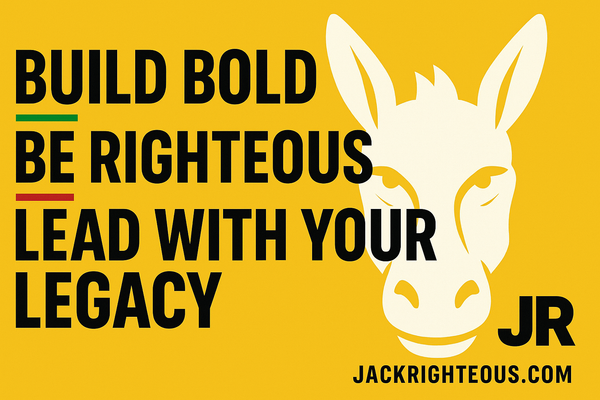What Kind of Strength Does Canada Need in 2025?
Gary Whittaker
🇨🇦 Article 1: What Kind of Strength Do We Really Want?
#CanadaStrong Election Series – Part 1 of 5
Introduction
Canada’s 2025 federal election comes at a time when one word dominates the conversation: strength.
Each major party says they’ll make Canada stronger—stronger economy, stronger borders, stronger leadership on the global stage. But in 2025, this isn’t just about who talks tough. It’s about who can lead a country through a world that is already under pressure—and actively being disrupted.
With Donald Trump back in the White House, Canada’s international footing is shifting quickly. The U.S. is no longer a predictable partner. It is a political disruptor—on trade, security, immigration, energy, and diplomacy.
This article asks:
- What kind of strength does each major party actually offer?
- Who is prepared to lead Canada through systemic disruption?
- Whose vision holds up when political slogans meet geopolitical instability?
Because this election isn’t just about choosing leaders. It’s about choosing what kind of Canada we’re trying to protect—and how we plan to do it.
🧩 The 2025 Strength Matrix
| Party | Influence in 2025 | Economic Strength | Global/Defense Strategy | Trump Disruption Response |
|---|---|---|---|---|
| Liberals (Carney) | 🟢 Governing party | Balanced budgets, housing investment, climate transition | Strengthen NATO, modernize NORAD, diplomatic engagement | Contain and stabilize through institutions |
| Conservatives (Poilievre) | 🟢 Leading opposition | Deregulation, carbon tax repeal, fast-track housing | Align with U.S. on energy and trade, bilateral approach | Embrace disruption as economic opportunity |
| NDP (Singh) | 🟡 Possible minority partner | Corporate taxes, universal programs, affordability | Defend sovereignty, focus on labor, climate justice | Resist Trumpism with progressive policy |
| Bloc Québécois | 🟡 Potential kingmaker | Quebec-focused economic and environmental autonomy | Quebec-first, limited foreign policy engagement | Shield Quebec; minimal federal response |
| Greens | 🔴 Symbolic influence | Sustainability, ecological transition | Non-militarist, pro-global climate cooperation | See Trumpism as existential threat |
| PPC (Bernier) | 🔴 Symbolic influence | Nationalist reset, low-tax populism | Exit global agreements, militarize borders | Align entirely with Trump worldview |
🔍 Disruption Is the Test
This election isn’t happening in a vacuum. It’s unfolding as Donald Trump’s second term begins reshaping Canada’s external environment in real time:
- 🛢️ February: Trump’s administration imposed tariffs on Canadian lithium, nickel, and rare earth minerals.
- 📜 USMCA: Trump has called for a reopening of the trade agreement, targeting climate and digital clauses.
- 🪖 NATO: Trump rebuked Canada’s defense spending and implied weak allies may not be defended.
- 🌐 Border: Trump referred to Canada as a "soft border problem", fueling talk of military presence at U.S. crossings.
💰 Economic Strength: Resilience or Deregulation?
Liberals position themselves as stabilizers. Carney’s plan relies on market credibility, gradual deficit reduction, and clean energy investment.
Conservatives frame strength as self-reliance: deregulation, tax cuts, and expanding domestic production.
NDP emphasizes strength through public services—universal pharmacare, social housing, and economic justice.
Under Trump, supply chains can fracture. Tariffs can return. Leaders will need more than slogans—they’ll need systems that can take a hit.
🏥 Social Strength: Who Protects People If Systems Break?
NDP offers the most expansive social protections.
Liberals aim for cautious expansion in collaboration with provinces.
Conservatives emphasize decentralization and local governance.
If public trust erodes and inflation rises, whose model keeps people afloat?
🌐 Global Strength: Who Manages the Trump Factor?
Liberals bet on diplomacy, NATO alliances, and global rules.
Conservatives see opportunity in bilateral U.S. alignment.
NDP calls for an independent foreign and digital policy aligned with Canadian values.
If Trump sidelines NATO or imposes tariffs again, who has the leverage and legitimacy to respond on Canada’s behalf?
🧠 Final Reflection: Strength Is the Question—Not the Answer
Every party promises to make Canada strong. But strength isn’t a headline—it’s a test. And Trump’s second term is already setting the exam.
This election is happening during a global reset. Institutions are strained. Alliances are fraying. And Canadians are being asked to choose not just who governs—but what kind of strength we believe in, and whether it can actually hold under pressure.
📚 Explore the #CanadaStrong Election Series:
1️⃣ Part 1: Leadership Strength Matrix
2️⃣ Part 2: Canada at a Political Crossroads
3️⃣ Part 3: Campaign Promises vs. Reality
4️⃣ Part 4: What Happens If No One Wins?
5️⃣ Part 5: Who Will Keep Canada Strong?
